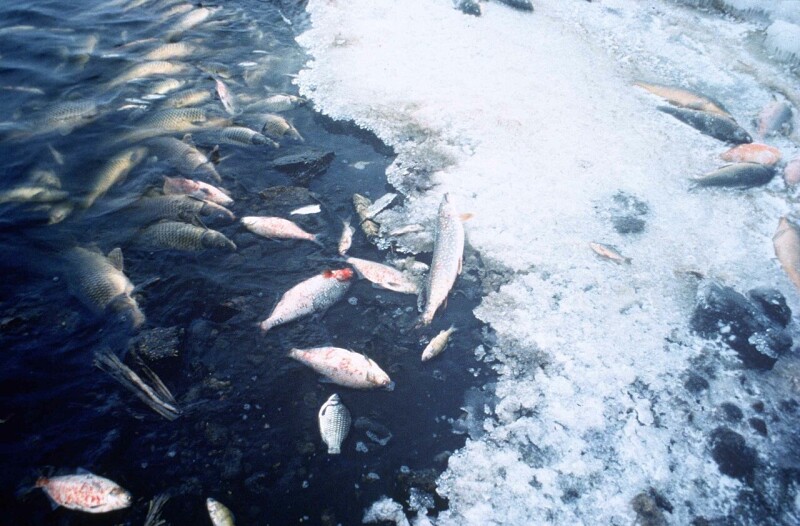The Louisiana Department of Wildlife and Fisheries (LDWF) requests the public’s help spotting fish kills that may occur throughout south-central and southeast Louisiana in the aftermath of Hurricane Francine.
Through sampling and monitoring efforts, LDWF biologists have learned that restocking following storms is not usually necessary and will not speed up the recovery process unless there is a complete kill in a closed system. However, we need to know where fish kills occur and how extensive they are to monitor recovery and consider management tools going forward, including habitat restoration or stocking if needed. Please help us by reporting fish kills in your area.
Call 1-800-442-2511 or your local fisheries office to report a fish kill.
Hurricane-related fish kills are generally caused by low dissolved oxygen (DO) and can occur from the storm's landfall until weeks after the event. The main factors contributing to hurricane-related fish kills include storm surge, the churning up of oxygen-poor water and sediment due to wind and rain, and the sudden input of large amounts of organic debris into waterways.
Following the event, organic matter will begin to decompose, and microbes will deplete the DO from the water, causing fish to “suffocate.” These factors can work alone or together to cause fish kills following a hurricane.
Storm-related fish kills have occurred in Louisiana since before recorded history, and the ecosystems have evolved to be resilient and bounce back from them. Decomposers and scavengers, including microbes, crawfish, crabs, fish, alligators, turtles, raccoons, and birds, will do their part to help clean up fish carcasses.
Many fish and aquatic organisms will find refuge from the low DO waters and participate in the boom year of reproduction that usually follows such events since fewer predators and more resources will be available by next spring.
While fish kills are shocking and can appear devastating, if the system has time to recover, they can lead to a rejuvenated system that is healthy and naturally replenished in the following years.
This storm will impact some of the same areas still recovering from Hurricane Ida. Natural sportfish recovery from Hurricane Ida was going well, as expected, with bass and crappie beginning to reach desirable sizes for anglers. Unfortunately, this storm could restart that process for some areas and impact areas further to the west.







